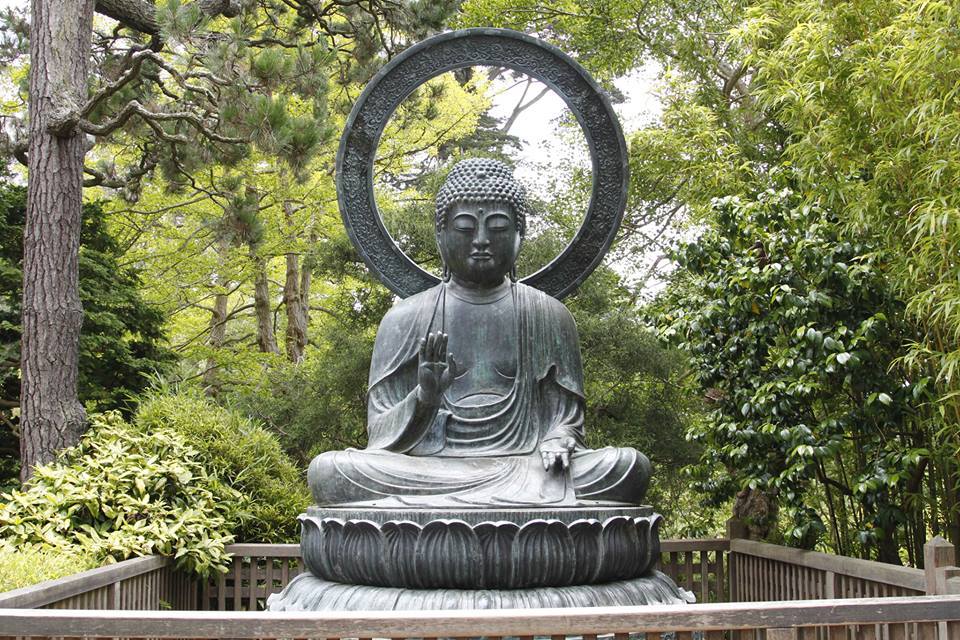I’ve been practicing meditation for almost ten years, and I’ve realized Buddhism, and many of its teachings, relate not only to life, but to writing, which for many of us is synonymous.
First off, please don’t let the title of my post scare you away! Buddhism is far more about psychology than religion; even the Dalai Lama is known for saying his “religion” is compassion; and meditation, the cornerstone of Buddhism, can be practiced by the religious and non-religious alike. Think of it like that hot trend right now—yoga. Yeah, yeah, I hear you saying. So what does all this have to do with writing? That’s why we’re here, isn’t it?
Well, I’ve been practicing meditation for almost ten years, and I’ve realized Buddhism, and many of its teachings, relate not only to life, but to writing, which for many of us is synonymous.
Equanimity
A couple of years ago, while meeting with my meditation instructor, I said something along the lines of, “I love Buddhism—except for the whole compassion thing; that part sucks. Most people get on my nerves and I have zero compassion for jerks!” My instructor, who’d read my first novel, and knew about the novel I was working on at the time, stared at me pointedly and asked if I ever felt my characters were jerks—if I ever lacked compassion for the people who inhabited my stories.
I think it helps as writers if we treat our characters like people—complex, living, breathing people. Instead of labeling your characters as good or bad or whatever, consider remaining curious.
Granted, the heroine of my first novel sleeps with her best friend’s husband (d’oh!), and the narrator of my second novel battles alcoholism and the habit of sleeping with strangers. Still, I felt defensive. I love my characters. I think they’re complex, broken, spirited and funny. When I told my instructor as much, he reminded me about the importance of equanimity: the practice of keeping curious and open without grasping hold to a fixed opinion.
I think it helps as writers if we treat our characters like people—complex, living, breathing people. Instead of labeling your characters as good or bad or whatever, consider remaining curious. Even if a certain character’s backstory doesn’t make it into the novel, you should know why and how they became who they are. If you write your so-called “bad” characters with no sense of insight, or compassion for that matter, you just might end up writing them as flat.
Discipline
In Buddhism, discipline is a key “paramita” or practice.
It’s tough to write a novel—to keep our momentum as writers—period—without discipline. When I first started meditating, I felt as if the random thoughts swirling in mind would surely drive me crazy, and sitting on my cushion became the last thing I wanted to do every morning. So I switched things up. Instead of aiming for twenty minutes, I set a more doable goal of only five minutes a day. I wanted sitting to become as routine as brushing my teeth. After I became comfortable with five minutes I aimed for ten and eventually twenty.
Discipline comes from “practicing” more days than not. Make writing part of your routine. Nothing special, just part of your routine. Consider not counting pages or words and simply make showing up the goal. Sometimes I write for an hour, sometimes only thirty minutes, but it’s amazing how much you can get done when you keep your goals low and achievable.
Humor
Q: Why don’t Buddhists vacuum in the corners?
A: Because they have no attachments.
(Ha ha. I found that joke online.)
In Buddhism there is an emphasis on humor and the practice of not taking ourselves too seriously.
What if we laughed a little at our stinky scene or chapter? What if we lightened up?
What if instead of beating ourselves up for not sounding like Faulkner or Morrison every time we sit to we write, we give ourselves a break and even have a chuckle over our worst line or passage? Frankly, the amount of cheese I’m sometimes able to generate when I write can be pretty hilarious. Why take writing so seriously that writing becomes torture? What if we laughed a little at our stinky scene or chapter? What if we lightened up? No one is expecting perfection in a draft. No one wants you beating yourself up over a sentence—or beating yourself up period.
I’m guessing that’s what the Buddha would advise. So my friends, pat yourself on the back. Smile. Stick to it!

(First appeared in Writer’s Unboxed)
